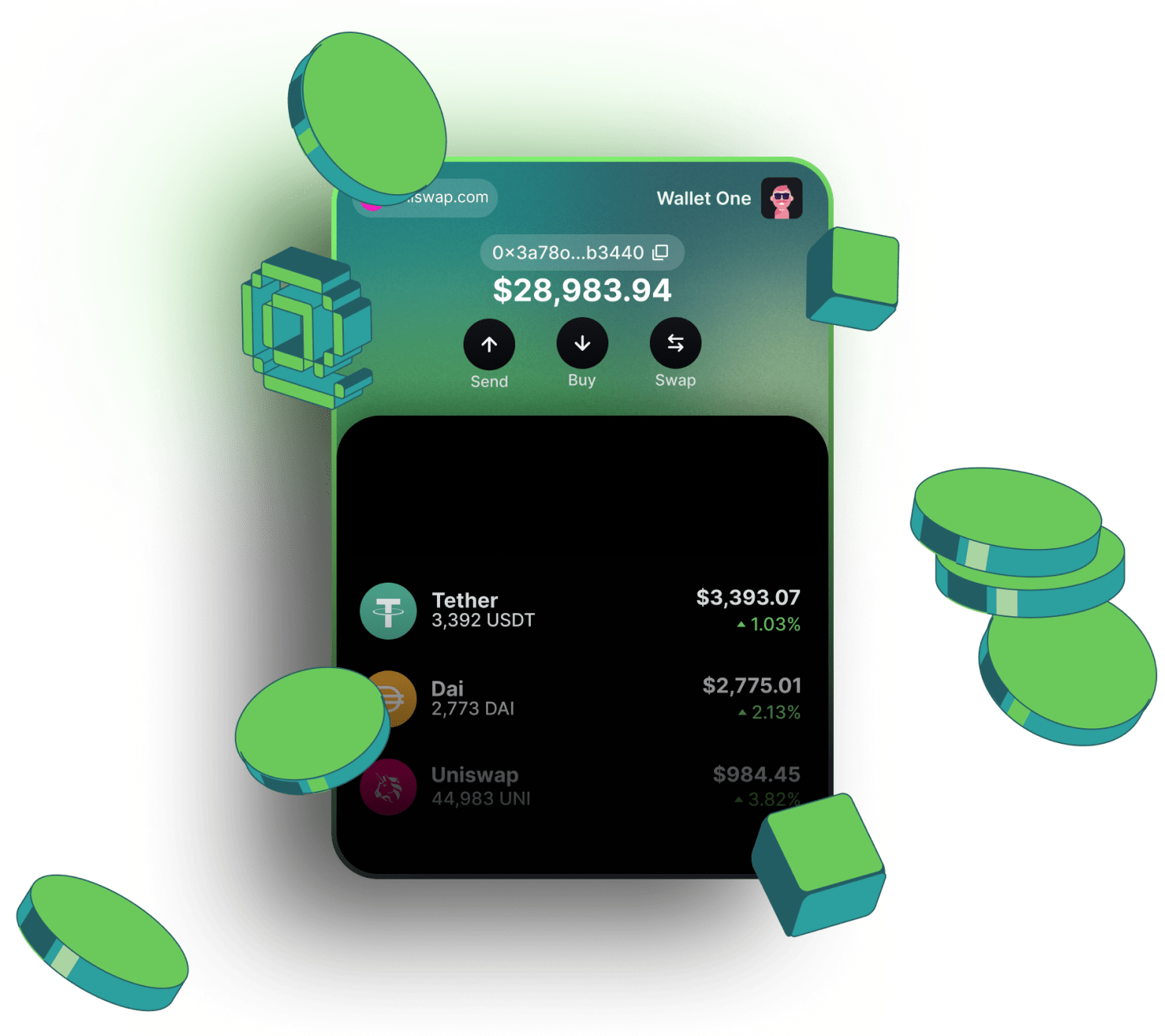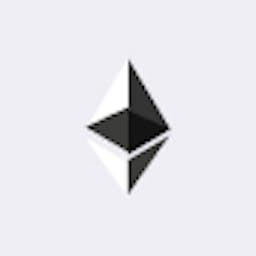Wigwam is the best  Polygon blockchain crypto wallet
Polygon blockchain crypto wallet

Why choose the Wigwam crypto app?
Work with Rootstock Testnets and Mainnet
Swap Rootstock tokens directly in the wallet
Buy Rootstock tokens, including the native token, by using a credit card
Ability to connect the wallet to all Rootstock blockchain dApps
How to get a Polygon address in Wigwam web wallet
Create a wallet in Wigwam
Choose a Polygon network from the dropdown menu
Copy you Polygon address
About Wigwam Polygon crypto wallet
Discover the ultimate Web3 experience with Wigwam, the cutting-edge Polygon network wallet designed for seamless cryptocurrency management. Tailored for both beginners and seasoned users, Wigwam offers a comprehensive platform for trading tokens, engaging with decentralized finance (DeFi), and diving into the vibrant universe of Non-Fungible Tokens (NFTs). Simplifying the digital asset experience, Wigwam eliminates the complexities, making it straightforward to engage with the Polygon network's vast opportunities.
Key features optimized for Polygon web wallet users:
- Instant crypto purchases: Buy POL and other cryptocurrency on the Polygon blockchain directly with your card through Wigwam.
- Multi-blockchain support -Wigwam enables effortless interaction across various blockchains, making it the perfect companion for users within the Polygon ecosystem. No technical knowledge is required to navigate the complexities of blockchain technology.
- Cross-Chain exchange Integration: Swap tokens effortlessly using Wigwam’s intuitive inbuilt exchange, designed for optimal use within the Polygon network.
- NFT Gallery and Preview: Manage and showcase your digital collectibles with ease, and preview Polygon NFTs before transferring, ensuring clarity and security for Wigwam Web3 users.
- Comprehensive Polygon portfolio tracking: Stay updated with real-time value changes of your tokens.
- Reliable security measures: Experience peace of mind with Wigwam’s non-custodial, externally audited crypto wallet, compatible with Ledger devices for enhanced security within the Polygon ecosystem.
- DeFi and Web3 Integration: Dive into DeFi, Play-to-Earn games, and NFT marketplaces with a seamless Web3 experience, making Wigwam the go-to Polygon crypto wallet.
- Decentralized Application (dApp) Approval: Maintain total control over interactions with decentralized apps, a critical feature for secure and efficient use of your Polygon wallet.
Polygon blockchain review
Polygon initially started as The Matic Network to provide solutions to Ethereum’s slow Transaction speed and high gas fee. As the goal expanded, Matic Network was rebranded as Polygon to become Ethereum’s “Internet of Blockchains”. Rather than sticking to its base chain like Optimistic rollups, Polygon aims to extend its scalability solutions for other blockchains to further encourage cross-chain interoperability.
Origins & Vision
Jaynti Kanani, Sandeep Nailwal, Anurag Arjun, and Mihailo Bjelic together founded The Matic Network in 2017, a layer 2 scaling sidechain solution to help Ethereum overcome its limitations of slow transaction speed and expensive gas.
The Matic Network was later rebranded as Polygon as its team envisioned that several scaling solutions could co-exist and set out to make that a reality.
Key Milestones
Polygon held an Initial Exchange Offering (IEO) in April 2019 that raised $5.6M in ETH from the sale of its native token $MATIC, this sale accelerated its further development.
The Matic Network went live in July 2020 with its Plasma and PoS chains.
The Matic Network underwent a rebranding in February 2021 when it was officially renamed “Polygon” to align it with its aim of becoming a multi-chain scaling solution for Ethereum and other blockchains.
To help developers in building and deploying multichain networks, Polygon released the first version of its SDK (Software Development Kit) in May 2021, SDK allowing developers to create standalone chains that are fully responsible for their security.
To provide further support with its SDK, Polygon Studio and Polygon Edge were launched in the same year.
Polygon made another huge step towards achieving its goal of combining other scaling solutions as it launched Polygon Avail as a roll-up solution and Polygon Maiden as a ZK-STARK extension, in November 2021.
The Polygon 2.0 journey began in October 2023, initiating the POL upgrade on the Ethereum mainnet after extensive development, community input, and successful testnet trials. POL, a next-gen token, will fuel the diverse ecosystem of zero-knowledge Layer 2 chains with a native re-staking protocol for multiple roles like validation, sequencing, ZK proof generation, and data availability committees.
What Consensus Algorithm Does Polygon Blockchain Use
Polygon uses a Proof-of-Stake (PoS) consensus model to verify the transaction. Users who wish to verify a transaction declare their MATIC token as collateral.
A “Validator Node” is selected at random. Validators earn MATIC token
rewards for successfully authenticating transactions. To ensure that validators
are working in the best interest of the network and promoting decentralization,
Polygon uses the slashing method where if a validator is found to be malicious or
dishonest, their staked tokens are slashed.
How Polygon Technically Solved Problems with Scalability, Decentralization, and Speed
Polygon’s Proof-of-Stake (PoS) Commit Chain is the technical foundation of Polygon, running alongside Ethereum to bundle and confirm transactions within the Commit chain itself. The Commit Chain operates as a separate blockchain alongside Ethereum, it validates transactions before returning the confirmed data to the Ethereum main chain. In terms of transaction throughput, Ethereum operates at 14 TPS, whereas Polygon significantly increases it to 7000 TPS.
Polygon has recently introduced its SDK (Software Development Kit) to transform Ethereum into a multichain system, enhancing transaction speed and enabling cross-chain interoperability.
SDK also offers other Layer-2 scaling protocols like Optimistic Rollups, ZKRollups, and StarkWare’s Validium (users have the liberty to select which scaling protocol they want to use on the Polygon platform).
Who are the Main Players in the Polygon Blockchain
The following two are the main players and roles in the Polygon blockchain.
- Validators: Any user can become a Validator node by staking as low as 1 MATIC. Validators secure the network by creating and confirming blocks, and if their behavior is malicious or makes an error or even if the validator's internet connection is glitchy, the validator could lose some of the staked MATIC.
- Delegators: Delegators stake their MATIC indirectly through a trusted validator of their choosing, sharing both risks and rewards.
DeFi Ecosystem on Polygon
Polygon's SDK (Software Development Kit), allows developers to craft and deploy fully customizable DeFi applications. Since Polygon is a layer-2 blockchain on Ethereum, it utilizes Ethereum's foundational principles of compatibility, extensibility, and modularity. Polygon’s easier plug-and-play SDK tool and its low gas fees make it a popular option for building and running DeFi.
Polygon’s DeFi ecosystem is quite diverse including decentralized exchanges like “Slingshot”, “Uniswap”, and “1inch”. Lending protocols like “Aave”, “Ovix”, and “ARCx”. You may easily work with Polygon dApps using Wigwam DeFi wallet.
Instead of Ethereum, users can use Polygon as the base blockchain for these.
NFTs Marketplaces on Polygon
NFT marketplaces on Polygon offer lower transaction costs and improved scalability, attracting a broader range of artists and collectors. The interoperability with Ethereum's mainnet maintains the value of NFTs, and the reduced barriers to entry and innovation potential make these marketplaces economically significant.
There are multiple NFT marketplaces on Polygon including but not limited to “OpenSea”, “PlayDapp”, and “TofuNFT”. These marketplaces feature a wide range of NFTs, serving as a hub for artists and collectors to mint, buy, sell, and trade NFTs. To work with NFTs on Polygon, we recommend using the Wigwam NFT wallet that has Polygon support from the box, advanced NFT gallery for your collectibles and full information about each NFT in the wallet.
Tokenomics and Gas Usage on Polygon
Even after the rebranding, Polygon kept the MATIC as its native platform token. With a maximum supply limit of 10 billion coins, MATIC has 9.2 billion coins in circulation. Since its launch and rebranding MATIC has kept growing and now it is among the top 20 currencies in terms of market capitalization. MATIC has several utilities such as
- Gas fee: The fee a user must pay whenever they conduct a transaction or use a Polygon-based application.
- Governance: Holding MATIC tokens comes with exclusive governance power as it can be used on Polygon Improvement Proposals (PIPs).
- Network Security: Since Polygon utilizes PoS Consensus which uses $MATIC as a staking token, these stake tokens can be lost if a validator is found to be dishonest. Which secures the network.
Conclusion
Polygon, a layer-2 blockchain has come a long way from being a solution for Ethereum’s scalability to making its path as a multiple scaling protocol supporting chain. Polygon offers Optimistic Rollups, ZKRollups, and StarkWare’s Validium making it the first-ever chain to provide all of that.
FAQ
MATIC coin is the native token of the Polygon blockchain.
To access your account information, transaction details, and other activities executed on Polygon, enter your public wallet address in the search bar at Polygon Blockchain Explorer. This will grant you access to all your account history and transaction specifics.
Utilizing a private crypto wallet for your MATIC is the most secure approach to transact. While there isn't a single "best" wallet universally recognized, here are some notable options to consider:
- Wigwam Web3 wallet
- Metamask Wallet
- Uphold Wallet
- Trust Wallet
You may use Polygon from the box in the Wigwam crypto wallet, but if you want to add this network to your Metamask account than just follow the next steps:
Launch MetaMask in your browser, click on your profile icon at the top-right corner of the wallet, and select Settings from the drop-down list. Select Networks from the list of the available settings and this will navigate you to the screen for adding the new network.
Click on the Add Network button, select Add a Network manually option from the bottom of the page, and enter the following details:
- Network Name: Polygon
- RPC URL: https://polygon-rpc.com/
- ChainID: 137
- Symbol: $MATIC
- Block Explorer URL: Polygon Blockchain Explorer
Click on the Save button after entering the aforesaid values.
According to data from DappRadar, the top three most popular projects running on the Polygon ecosystem span across DeFi, NFTs, and gaming. In the DeFi category, these projects include Aave V3, Quick Swap, and Aave V3. For NFTs, the notable projects are The Sandbox, Collect Trump Cards, and Zed Run. The popular games on Polygon are Qorpo World, Kratos Studios and Sunflower Land.





